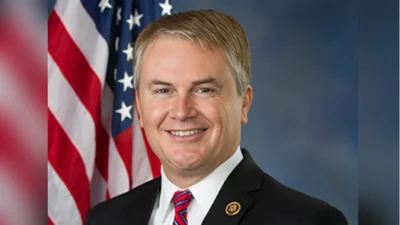Dear Secretary Thompson:
The purpose of this letter is to express my deep concern regarding a final rule with commentperiod, published by the Department of Health and Human Services (HHS) in the Federal Registeron Aug. 29, 2003. (42 CFR Part 447) Specifically, the final regulation:
1.) establishes a recordkeeping requirement for drug manufacturers under the Medicaid drug rebateprogram;
2.) sets forth a three year time limitation during which manufacturers must report changes to averagemanufacturer price and best price for purposes of reporting data to HHS; and
3.) announces the pressing need for codification of fundamental recordkeeping requirements.
Unfortunately, it is my opinion that this regulation has numerous unintended and adverseconsequences upon the False Claims Act.
On Sept. 19, 1995, HHS proposed a regulation affecting, among other things, thedocument retention period for the Medicaid drug rebate program. This proposed regulation wasintended to address numerous issues, including manufacturer recordkeeping requirements and price recalculations. Consequently, and based upon that fact, HHS recently decided to extract severalportions of that proposed regulation and issue a final rule. Because eight years have passed since theproposed rule, HHS decided to provide interested parties with an additional opportunity to providecomments on the provisions and extended the effective date of the rule from Oct. 1, 2003, toJan. 1, 2004.
My first and foremost concern is that it appears this new regulation will have a severe andadverse impact upon the False Claims Act and whistleblowers generally. Typically, old billingrecords, including pricing data and supporting documentation regarding a drug manufacturer’sAverage Manufacturer Price and Best Price are necessary in cases brought under the False ClaimsAct. Should this regulation become effective, it will dramatically limit the ability of a whistleblowerto review and rely upon old records to prove liability and/or damages because there will be norecords available going back further than three years.
Further complicating this situation is the fact that False Claims Act cases are filed under seal.As a result, even if a False Claims Act case is filed and an investigation is on-going, drugmanufacturers may not be on notice to suspend the destruction of documents. This will dramaticallyaffect the ability of a whistleblower to establish a case and will have a concurrent negative affectupon the Department of Justice (DOJ) in those cases in which it intervenes.
At the same time, I recognize the value in establishing a definite period of time forrecordkeeping, in cases where none existed before. But, the three year period just does not work,especially when taking the False Claims Act into consideration.
As drafted, this regulation is just plain wrong-headed and should not take effect. Indeed, itis my opinion that HHS should not take any actions that would make it easier for those defraudingthe Medicaid drug rebate program to get away with breaking the law. Instead, we should be makingit easier to identify and prosecute those who are ripping off the Medicaid drug rebate program, ratherthan creating an environment where the record retention policies implemented by HHS assistcriminals and complicate cases for whistleblowers and Justice Department attorneys.
In addition, it is also likely that this regulation will have an adverse impact on cases currentlyin the system. Surely, HHS does not want to encourage the destruction of documents by drugmanufacturers who are not yet aware of the fact that they are the subject of an unresolved audit orgovernment investigation.
By this letter, I am also advising both DOJ and the HHS, Office of the Inspector General ofmy concerns. In closing I look forward to receiving a response from you addressing how theconcerns outlined in this letter, regarding the impact of 42 CFR Part 447 upon the False Claims Act,will be addressed.
Thank you in advance for your assistance in addressing this critically important issue in thebattle against fraud, waste, and abuse in the Medicaid drug rebate program.
Sincerely,
Charles E. Grassley Chairman
cc:Attorney General John Ashcroft Dara Corrigan, Office of the Inspector General, HHS
Source: Ranking Member’s News









